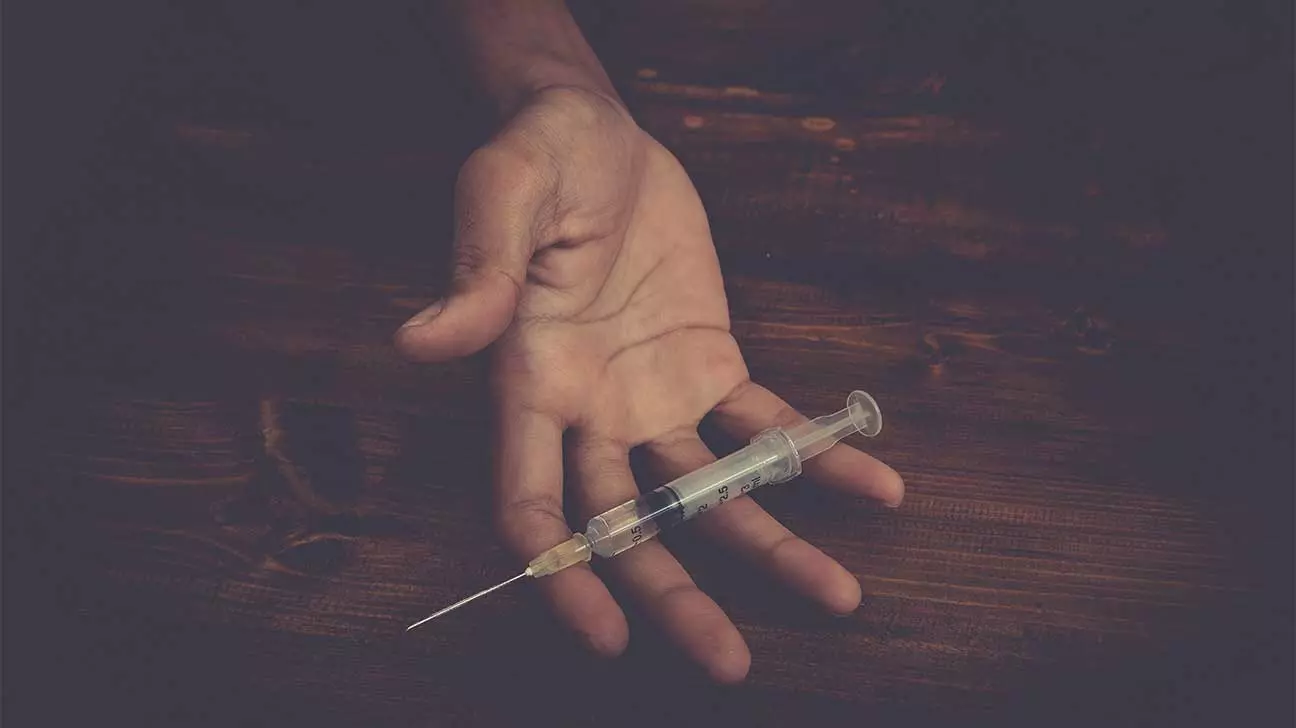
One of the causes of opioid overdose is that people who use heroin develop a tolerance that dulls the effects of the high. As a result, they take more of the drug to get the same high.
A heroin tolerance can contribute to heroin addiction, which leads to dangerous side effects, including risk of overdose.
How Long It Takes To Develop A Heroin Tolerance
Heroin is a powerful opioid. After the first use of the drug, opioid receptors begin to dull, requiring more of the drug to get the same effect.
However, the extent of that tolerance can vary from person to person.
Factors That Influence Heroin Tolerance Levels
The pharmacology of heroin indicates that opioid tolerance is connected to opioid receptors. While this is the primary reason for the development of tolerance, other factors can influence it.
Overall Health
Overall health can be a contributing factor to tolerance levels. Specifically, if a person has a high metabolism, that can potentially decrease the concentration of opiates around the opioid receptors.
A lessening of that concentration can result in a lessening of the effects of the drug leading to a buildup of tolerance.
Genetics
Genetics can play a role in drug addiction, but it is a complex study. There is no single gene that causes a predisposition toward heroin addiction.
However, there does seem to be a combination of genes that can be predictors for enhanced sensitivity of certain key opioid receptors, giving a person less tolerance to heroin’s effects or the effects of other opiates.
Heroin Use
Opioid use itself plays a role in tolerance.
If you use heroin, or analgesic opiates like fentanyl, consistently every day, you will find that your tolerance to the effects of the drug will increase more quickly than if you use the drug with less frequency.
Also, the recurrent cycle of heroin use, abstinence, and reuse can build a tolerance to the drug, even if you have not used it for a period of time.
Health Risks Of A High Heroin Tolerance
High heroin tolerance has several health risks. Feeling less of the drug’s effects does not mean you are immune to its health risks.
Physical Dependence
The more you engage in heroin drug use, the greater physical dependence you are likely to develop.
An opioid dependence means that your body needs the use of heroin to regulate the rush of dopamine it creates. To a lesser extent, this is also true of analgesic opiates.
Physical dependence can happen whether you feel its effects or not.
Respiratory Depression
The greater the opioid amount that you take, the more the drug will depress your respiratory system. This means you will experience slower breathing and heart rate.
These symptoms ultimately prove fatal for many people who are addicted to the drug.
Overdose Death
Ultimately, a tolerance to the drug’s effects does not mean immunity to a heroin overdose. In fact, it is the pursuit of higher doses of heroin that causes an increased risk of overdose.
Naloxone is used to treat opioid overdose, but tolerance to the effects of heroin can cause a person to take so much of the drug that countermeasures such as naloxone cannot reverse the overdose.
Treatment Options For Heroin Addiction
Ultimately heroin addiction, like all drug use, is treatable. Medication-assisted treatment (MATs) is available to help with withdrawal symptoms.
Medications approved to treat heroin use disorder include:
- buprenorphine
- naltrexone
- methadone
Many treatment centers offer detox and inpatient treatment for heroin substance use disorders, as well as evidence-based therapy.
Find Substance Use Disorder Treatment Today
AddictionResource.net offers confidential help so you can find a health care provider that offers treatment for opioid withdrawal.
Call our helpline today, and let us guide you toward the help you or your loved one need.
Addiction Resource aims to provide only the most current, accurate information in regards to addiction and addiction treatment, which means we only reference the most credible sources available.
These include peer-reviewed journals, government entities and academic institutions, and leaders in addiction healthcare and advocacy. Learn more about how we safeguard our content by viewing our editorial policy.
- American Association of Pharmaceutical Scientists Journal — Opioid Tolerance Development: A Pharmacokinetic/Pharmacodynamic Perspective
https://www.ncbi.nlm.nih.gov/pmc/articles/PMC2628209/ - Genes, Brain and Behavior — Genetic Susceptibility to Heroin Addiction: A Candidate-Gene Association Study
https://www.ncbi.nlm.nih.gov/pmc/articles/PMC2885890/#:~:text=The%20genetic%20contribution%20to%20vulnerability,.%2C%201996%2C%201998). - National Institute on Drug Abuse — Heroin Research Report
https://nida.nih.gov/publications/research-reports/heroin/overview - National Institute on Drug Abuse — Overdose Death Rates
https://nida.nih.gov/drug-topics/trends-statistics/overdose-death-rates - Psychopharmacology — Tolerance and Sensitization to Chronic Escalating-Dose Heroin Following Extended Withdrawal in Fischer Rats: Possible Role of Mu-Opioid Receptors
https://www.ncbi.nlm.nih.gov/pmc/articles/PMC3494815/ - Substance Abuse and Mental Health Services Administration — Medication-Assisted Treatment (MAT)
https://www.samhsa.gov/medication-assisted-treatment


